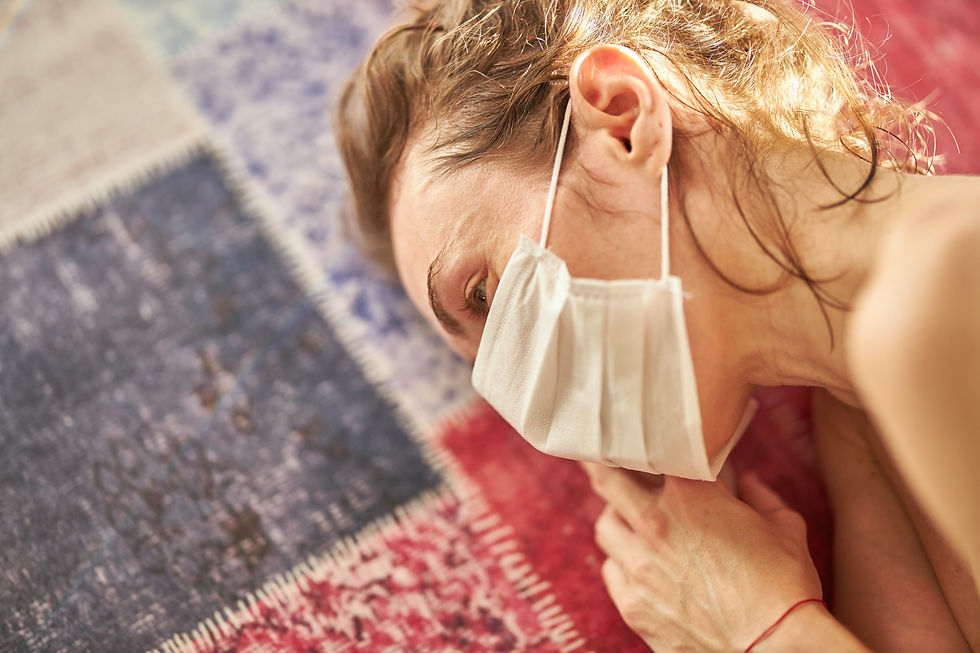6 things you should know about stress
- Diana Wee
- Feb 24, 2021
- 3 min read
Updated: 3 days ago

Everyone feels stressed from time to time, but what is stress and how does it affect you? Some people may cope and recover from stressful events more quickly than others. So, how can we be one of them who cope with stress more effectively?
1) Stress affects everyone
Stress is a normal human experience and no one is exempted from it. In a nutshell, stress is our body’s response to pressure, whether real or perceived. Stress is often triggered when we feel the demands outweigh our resources to successfully cope, typically when we experience something unexpected, new, or challenging, threatening, or when we feel we have little control over a situation.
Many different situations or life events can cause stress. A stressor (stress trigger) could be a one-time or short-term occurrence, or it can be intense and reoccurring for a long time. Stressors can be in many forms, such as
Situational stress: e.g. Illness, financial issues, losing a job, divorce
Social stress: e.g. Conflict with others, relationship issues, cyber bullying
Routine stress: e.g. Pressures of work, school, deadlines
Internal stress: Over-thinking, unhelpful thinking patterns, perfectionist expectations
Traumatic stress: e.g. major accidents, physical abuse, natural disaster where people may be in danger of being seriously hurt or killed.
2) Not all stress is bad
There are different types of stress:

(i) Eustress, or positive stress —> some stress, short term, causes increased energy focus, motivation, and feels exciting. Positive stress prepares you for optimal performance and can motivate you to get things done. E.g. of eustress: receiving a work promotion, marriage, buying a new home, planning an overseas holiday, or having a baby.

(ii) Distress, or negative stress —> is intense, can be short or long-term, causes anxiety and low mood, decreases performance, and can lead to mental and physical problems.
E.g. of distress: Child's behavioural problems, conflict at work, death of spouse, money issues
3) Understand stress response
When your mind perceive danger or threat, your stress response is activated. Stress signals the body to prepare to face a threat or flee to safety. In these situations, a series of changes occur within your body, including quickening of your pulse, rapid breathing, muscle tension, a burst of adrenaline, redirection of blood away to major organs, release of cortisol, your brain uses more oxygen and increases activity—all functions aimed at survival and in response to stress. Reactions to stress could include fight, flight, freeze or flourish.
4) Observe signs of stress
Signs of stress can include emotional, physical, cognitive and behavioural symptoms. If you’re stressed, you may experience:
heart palpitations
shallow breathing or hyperventilating
sweating
chest discomfort
headaches, nausea
indigestion and gastro issues
muscle aches and pains
irritability
poor sleep, concentration
appetite changes
over-thinking
avoiding others
5) Too much stress can cause negative effects
Too much ongoing, chronic stress, can wear us down and leave us in a permanent stage of fight, flight or freeze; unable to cope and overwhelmed. It can cause or exacerbate many serious health problems, including mental health problems, such as anxiety disorder, depression; physical health problems, such as cardiovascular disease (e.g. heart disease, high blood pressure, heart attacks, stroke), gastrointestinal conditions (e.g. bloating, Irritable Bowel Syndrome, stomach ulcers), and further impact on work work performance, relationship, finance, family problems and so forth.
6) There are healthy ways to cope
It’s not stress that kills us, it’s our reaction to it. When we take practical helpful steps to manage our stress, we can recover from them quicker and could even flourish in difficult situations.
Stay tuned for future post where we highlight helpful coping strategies.
Till then, take care and stay safe!









Comments